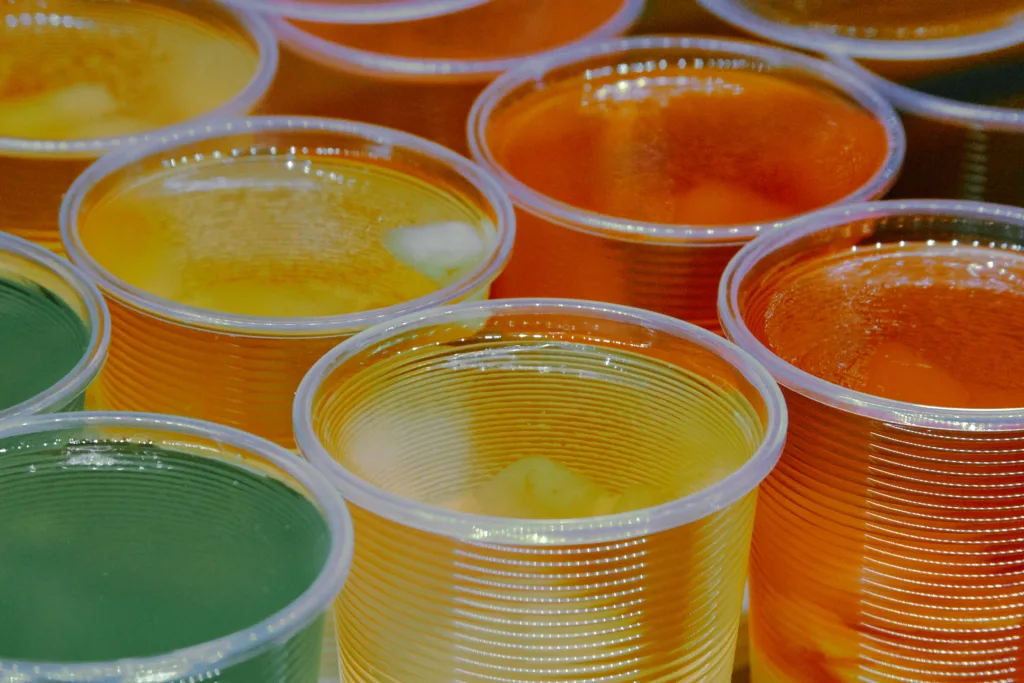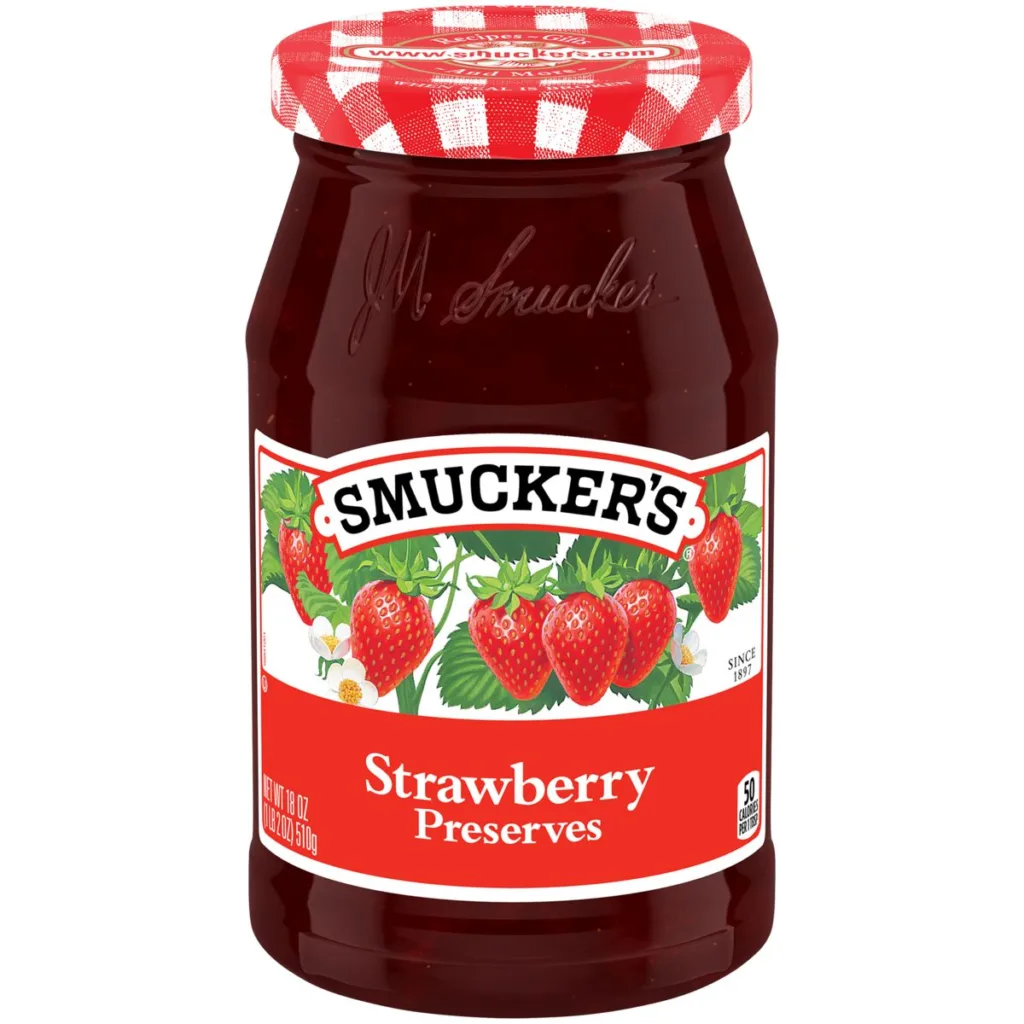Jelly is a delicious and versatile spread that can be enjoyed in many ways. Whether you like to spread it on toast, use it as a topping for pancakes or waffles, or add it to your favorite recipes, jelly is a great addition to any kitchen. But one question that often comes up is whether or not jelly needs to be refrigerated. In this blog post, we’ll take a closer look at jelly and its storage requirements.
First, let’s define what jelly is. Jelly is a type of fruit spread made from fruit juice, sugar, and pectin, which is a natural thickener derived from fruit. The mixture is boiled until it thickens and then poured into jars to cool and set. Jellies can be made from a variety of fruits, including berries, grapes, and citrus fruits.
Now, let’s talk about whether or not jelly needs to be refrigerated. The short answer is that it depends on the type of jelly and whether or not it has been opened. Unopened jars of jelly can be stored in a cool, dry place, such as a pantry, for up to 12 months. However, once the jar has been opened, it shold be refrigerated to maintain its freshness and prevent spoilage.
Most jellies do not contain preservatives, which means that they are more susceptible to spoilage if they are not stored properly. Refrigeration helps to slow down the growth of bacteria and mold, which can cause the jelly to spoil. If you leave jelly out at room temperature for too long, it can develop a sour or off taste, and you should discard it.
It’s also important to note that homemade jellies may have different storage requirements than commercially produced jellies. If you make your own jelly, be sure to follow a trusted recipe and store it according to the instructions provided.
If you want to keep your jelly fresh and flavorful, it’s best to refrigerate it after opening. This will help to ensure that it lasts for up to 6 months in the fridge. If you have unopened jars of jelly, you can store them in a cool, dry place for up to 12 months. By following these simple storage guidelines, you can enjoy your favorite jelly flavors all year round.
How Long Can Jelly Remain Unrefrigerated?
Jelly, being a perishable food item, should not be left unrefrigerated for too long. If unopened, jelly can be stored in a pantry or a cool, dry place for up to 12 months. However, once the jar is opened, it should be refrigerated promptly and consumed within 6 months for optimal quality and safety. Leaving jelly unrefrigerated for extended periods can lead to spoilage, bacterial growth, and potential foodborne illnesses. Therefore, it is recommended to store jelly in a cool and dry place and refrigerate it once opened to ensure its freshness and longevity.

Do I Need to Refrigerate Welch’s Jelly?
Welch’s jelly should be refrigerated after opening to maintain its freshness. This is because most of Welch’s jellies, jams and fruit spreads do not contain preservatives. Therefore, if the containers are not refrigerated after opening, they may spoil quickly and lose their taste and texture. It is recommended to store the opened jar of Welch’s jelly in the refrigerator and consume it within several months for best quality. Additionally, it’s important to remember to always use a clean spoon or knife when scooping jelly from the jar to prevent contamination and spoilage.
Is It Safe to Eat Jelly Unrefrigerated?
Jelly is a semi-solid food that is made by boiling fruit juice, sugar, and pectin together until it thickens. Whether or not you can eat jelly unrefrigerated depends on several factors, including the type of jelly, how it was made, and how long it has been sitting out in the open. In general, if you have made jelly usng standard canning procedures and have properly sealed the jars, it can be stored at room temperature for up to a year. However, once the jar has been opened, it should be refrigerated and consumed within a month.
If you have made homemade jelly that has not been canned or sealed properly, it should always be refrigerated. Leaving unrefrigerated jelly out in the open for an extended period can create the perfect environment for bacteria to grow, leading to spoilage and potential health hazards. In addition, exposure to heat and light can cause the jelly to break down and lose its quality over time.
If you plan to eat the jelly within a month and it has been properly sealed, it can be kept at room temperature. However, if you want to ensure its freshness and safety, it is best to always refrigerate your jelly.
Do I Need to Refrigerate Smuckers Jelly?
Smucker’s fruit spreads, jams, jellies and preserves sould be refrigerated after opening. The back label of our products recommends refrigeration to maintain the quality and freshness of the product. Refrigerating our fruit spreads also helps to prevent the growth of bacteria, mold, and yeast that can spoil the product. While our peanut butter is classified as non-perishable, our fruit spreads are made with real fruit, sugar, and pectin and are more likely to spoil if left at room temperature for an extended period of time. Therefore, it is best to store Smucker’s jelly in the refrigerator after opening to ensure that it stays fresh and delicious for as long as possible.

Conclusion
Jelly is a delicious and versatile spread that can be enjoyed in a variety of ways. Whether you prefer it on toast, as a topping for desserts or as an ingredient in cooking and baking, there is no denying the appeal of this sweet and fruity treat. It is important to store unopened jars of jelly in a cool, dry place and to refrigerate them after opening to maintain their freshness and flavor. With a shelf life of 12 months unopened and 6 months after opening, stocking up on your favorite jellies, jams and fruit spreads is a great way to ensure that you always have a tasty and convenient snack or ingredient on hand. So go ahead and indulge in a jar of jelly today – your taste buds will thank you!
